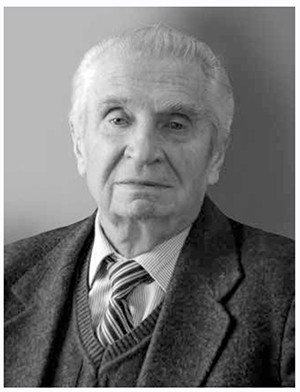J.ophthalmol.(Ukraine).2021;1:81.
http://doi.org/10.31288/oftalmolzh2021181

In Memoriam: Georgii Ivanovich Zheltov
(01.06.1939-07.11.2020)
TO CITE THIS ARTICLE: In Memoriam: Georgii Ivanovich Zheltov. J.ophthalmol.(Ukraine).2021;1:81. http://doi.org/10.31288/oftalmolzh2021181
Georgii Ivanovich Zheltov, a distinguished scientist in the field of laser physics and laser ophthalmology, a senior researcher at the Physics Institute of National Academy of Science of Belarus, Dr Sc (Physics and Mathematics), and the Winner of the State Prize of the Republic of Belarus, passed away on November 7, 2020, at the age of 81.
He was born on June 1, 1939, in Tbilisi. After graduating from the Bauman Moscow Higher Technical School in 1966, Zheltov was accepted to work at the Physics Institute, where he worked for more than 50 years. During 1978 to 1987, he was the Chief Engineer of the Special Design and Technological Bureau at the institute, and contributed much to the development of design and experimentation facilities of the institute.
G.I. Zheltov defended his Cand Sc (Physics and Mathematics) thesis in the field of high-peak power solid lasers in 1973 and doctoral (Dr Sc (Physics and Mathematics)) dissertation in the field of laser physics in 1997. From the mid seventies, he was contributing substantively to the development of knowledge on the physical mechanisms underlying the relationships between high-peak power laser radiation and complex multilayer biological structures. The results of the studies became the basis for building models of laser-induced destruction of heterogeneous biological structures (like the retina). The models have been tested in numerous experimental studies conducted by researcher of the Physics Institute and the Filatov Institute for more than 20 years. Findings of these studies were used for developing novel laser devices and methodologies for medical applications. Initial studies were conducted in rabbits at the Filatov institute, and subsequent studies, in primates at the Research Institute for Experimental Pathology and Therapy in Sukhumi. Later on, laser devices and methodologies were being developed.
The first in the world neodymium transscleral contact-compression laser coagulator for the treatment of glaucoma and intraocular tumors was developed by researchers from the Physics Institute and the Filatov Institute under the guidance of G.I. Zheltov.
G.I. Zheltov was a leading contributor to studies of selective effects of microsecond laser pulses on the retina. The above advances were important for developing non-invasive eye treatment and microsurgery techniques with selective effects on tissues and without causing thermal damage to surrounding healthy structures. These works were well known in communities of ophthalmologists, biophysicists, and engineers specializing in the design of medical laser devices of Moscow, Odesa, Leningrad, Saratov, Rostov-upon-Don, and Krasnoiarsk.
Among the most important results of G.I. Zheltov’s research are the determination of maximum permissible levels of laser radiation for the human eye and the development on this basis of all-union regulatory guidelines for laser safety. The results of his studies were widely discussed at numerous international conferences held in the USA, Japan, and Europe, and national conferences throughout the USSR, from Grodno to Vladivostok, and from Leningrad to Tashkent. He was an invited speaker at all MACULA conferences held at Rostov-upon-Don.
In 2001, a team of researchers including G.I. Zheltov was awarded the State prize of the Republic of Belarus in Science and Technology for a series of studies entitled “Mechanisms of the development and methods and means of treatment for glaucoma, cataract and light-induced retinal injuries”.
In recent years, the scientist has devoted a lot of attention to (1) the development of the methods of and hardware for iris-based personal identification and (2) a new promising area of laser medicine, low-temperature (cavitation) laser surgery, which allows perfect selectivity and accuracy of laser tissue targeting for microsurgical procedures. In addition, he has not lost his connections with science communities of Moscow, St Petersburg, Rostov-upon-Don, and Odesa.
By those who knew him, G.I. Zheltov, a distinguished scientist and a warm and sympathetic person, will remain a cherished memory.
